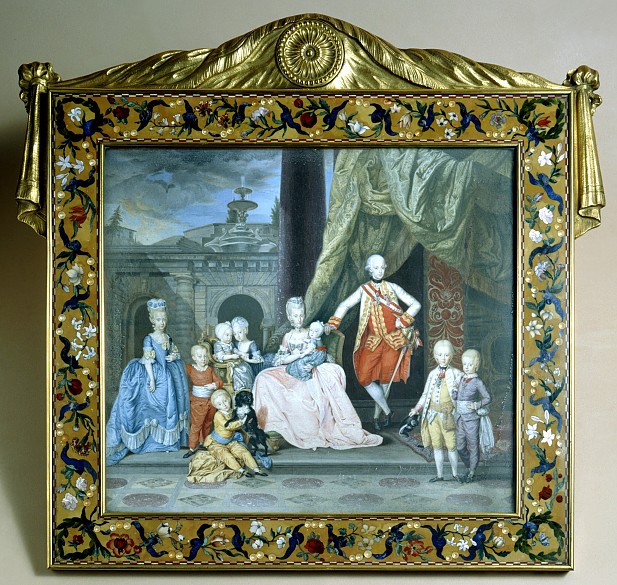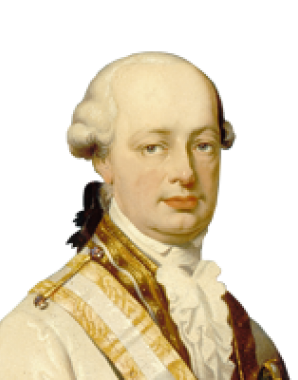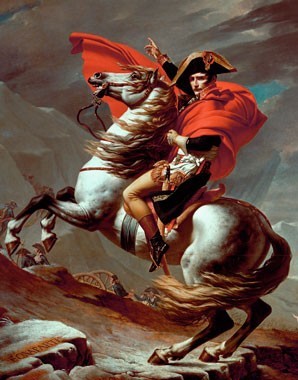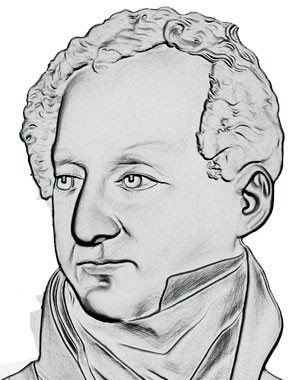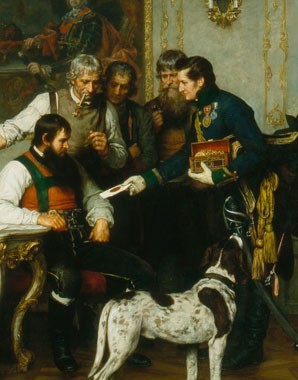Archduke Johann – a maverick in the Habsburg family
Archduke Johann has always been one of the most popular figures among the Habsburgs. But how did a scion of the Tuscan line of the dynasty become the ‘Styrian Prince’?
Born in Florence on 20 January 1782, Archduke Johann was the son of Peter Leopold, grand duke of Tuscany (later, as Leopold II, Emperor of Austria from 1790–1792) and Maria Ludovica of Spain from the House of Bourbon.
He was the thirteenth child to be born to this prolific couple, who would go on to have a total of sixteen children. But in 1792 at the age of ten the young prince lost first his father and two months later his mother. His elder brother Franz, fourteen years his senior, who had now become Holy Roman Emperor as Franz II as well as head of the dynasty, assumed the guardianship of his younger brother, taking over responsibility for his upbringing and education.
Johann had a difficult relationship with his elder brother, which did not improve in adulthood. The younger and brighter child grew into an intelligent and ambitious young man who constantly questioned his brother’s authority. His elder brother Franz was regarded as rather wooden and not very engaging by nature. This fraternal rivalry was heightened by the imbalance in power between them, since Franz was now emperor and head of the dynasty and as such demanded complete subjection to his will. At even the smallest signs of dissent he reacted by making life difficult for his younger brother.
Johann’s education reflected the Enlightenment ideas of his father. His views were also shaped by liberal tutors, including Franz Anton von Zeiller, one of the authors of the General Civil Code of 1811 which considerably improved the legal status of the empire’s citizens.
The young archduke’s career began in typical fashion for a prince of the dynasty, with a military posting. However, the inexperienced eighteen-year-old Johann was entrusted by his jealous brother Franz with what amounted to a suicide mission. As commander-in-chief of the Habsburg army at the Battle of Hohenlinden in 1800, Johann suffered a crushing defeat at the hands of superior French forces. The ambitious young man was badly affected by this disaster, which diminished his ardour for action for the time being.
After this he became his brother’s representative in Tyrol. The presence of a representative of the dynasty had become necessary in order to reinforce the ties between the western provinces of the empire and the House of Habsburg, as these lands were increasingly threatened by the Revolutionary Wars with France.
It was here that Archduke Johann encountered the idea of a provincial defence force or territorial army. From 1799 militias made up of middle-class men and peasants had banded together to defend their country. In Tyrol this drew on the historical tradition of riflemen, that is, groups of peasant farmers who had been granted the right to bear arms in self-defence. When Tyrol was ceded to France’s ally Bavaria in 1805, Johann was in communication with Andreas Hofer, the leader of the Tyrolean resistance against the French and Bavarian occupiers. In 1806 Archduke Johann presented plans for militias in all the Habsburg lands, While they had the support of Archduke Karl, they were not approved by the emperor until 1808.
The situation in Tyrol subsequently escalated. Spurred on by the initial successes of the Austrian army in the war against Napoleon, the Tyroleans launched an open rebellion in 1809. At first the Viennese Court promised full support. But soon the tables turned and Emperor Franz was forced to sacrifice Tyrol, breaking his promise to keep the province under Habsburg dominion. Abandoned and deprived of support from Vienna, the Tyrolean revolt collapsed. Its leader Andreas Hofer was overwhelmed by events, and was eventually betrayed and executed.
Archduke Johann was forced to move the focus of his activities to Styria. In 1812/13, relying on his huge popularity among broad sectors of the population, he proposed the idea of an ‘Alpine League’ uniting the Alpine provinces which were to liberate themselves from occupying forces through popular rebellions, acting on their own initiative, independently of the central Viennese government.
However, this was a step too far for his imperial brother and the State Chancellor Metternich, one of Johann’s most implacable adversaries. Johann was forced to retire, his allies were arrested and the scheme consigned to oblivion. This also meant the end of his political career: Johann was never again entrusted by his brother with an official function. At first he was even forbidden from returning to Tyrol ever again.
